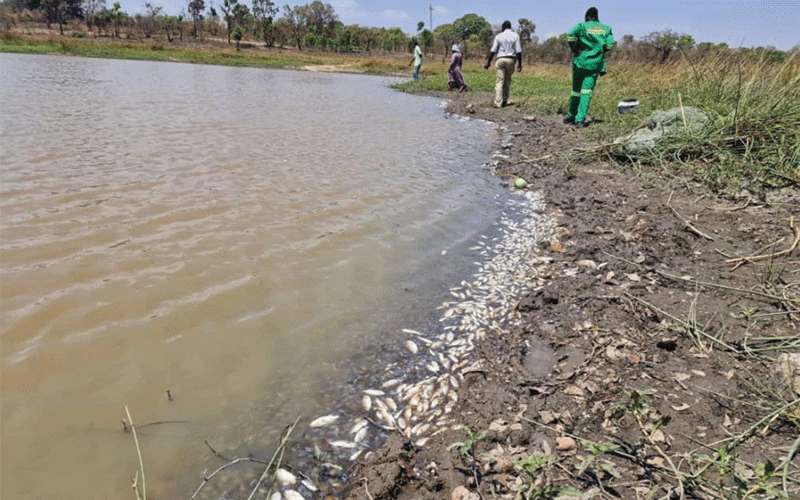
THE Japanese government has availed US$5,1 million expected to benefit at least 37 500 smallholder farmers as the country reels from the dire effects of the El Niño-induced drought.
The funds, which will be distributed through the World Food Programme (WFP), come at a time when developmental partners and the government have been working on mitigating the effects of the drought.
Speaking during the signing ceremony in Harare yesterday, WFP country director Barbra Clemens said the funds would enable the UN agency to implement climate resilient and sustainable agricultural initiatives across five districts, directly supporting approximately 30 000 people.
“Together, we are paving the way for a brighter and more secure future for Zimbabwe’s communities. This partnership could not have come at a more critical time.
“Zimbabwe continues to contend with devastating impacts of El Niño-induced droughts, erratic weather patterns and shifting agricultural seasons and with the support of Japan, we look to turn these challenges into opportunities,” she said.
Clemens said smallholder farmers were being capacitated to adopt sustainable agricultural practices through the establishment of water-based infrastructure and enhanced agricultural extension services as well as developing value chains.
“Crucially, we are also planning to link these farmers with reliable markets, including buyers from the private sector. This initiative is about more than food security, it is about transforming lives,” the WFP country director said.
“It is about shifting from traditional assistance to creating empowered, self-reliant communities capable of thriving despite adversities. Together, we are building a future where every farmer, family and child has the tools and opportunities to prosper.”
- Govt to distribute grain as hunger stalks millions
- Coping with drought through WFP’s resilience programme
- Zim’s urbanites facing high prices
- 3,8m villagers face hunger
Keep Reading
Japanese ambassador to Zimbabwe, Yamanaka Shinichi said small-scale farmers played a vital role in fostering economic growth and ensuring food security in the country.
He, however, bemoaned the adverse effects of climate change which expose farmers to elements such as droughts.
“The project will focus on providing vital water resources to the communities and training farmers on market-oriented approach through the concept of grow-to-sell under the Zimbabwe Smallholder Food Culture Empowerment and Promotion, so-called ZIMCEP,” he said.
Shinichi said under the project, small-scale farmers would be supported in growing sesame seeds to practice market-oriented agriculture.
“Most of these sesame seeds will be processed into sesame products like sesame oil and sesame paste. These sesame products are essential for Japanese cuisine,” he said.
“Itochu Corporation, one of Japan’s largest trading companies, is expected to play an important role in completing the value chain of the project.”
Lands, Agriculture, Fisheries, Water and Rural Development permanent secretary Obert Jiri said it was important for Zimbabwe to build resilience following the El Niño-induced drought.
“For us to come out of it, we need to certainly develop resilience. This project emphasises that, building on what lessons we have learned when we went through this drought and what we need to recover,” he said.
“The transformation agenda continues and what is important to note here is the involvement of the private sector, particularly the sustainable agricultural technology and the Japanese company that provides the market.”










